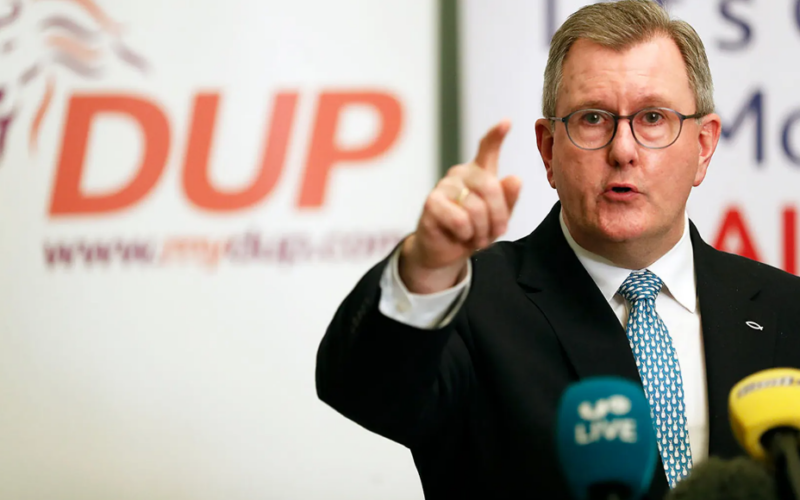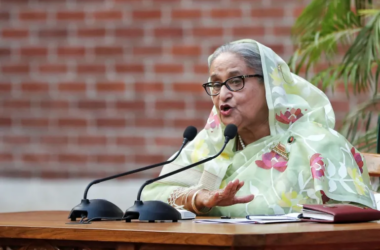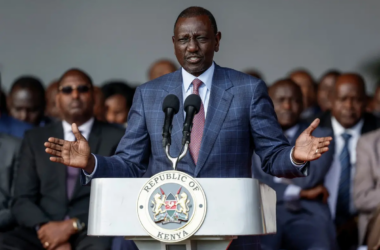The leader of Northern Ireland’s Democratic Unionist Party (DUP) announced a breakthrough deal with the British government, marking a significant step towards the re-establishment of the region’s power-sharing government. This development comes after nearly two years of political deadlock caused by the DUP’s withdrawal in protest against post-Brexit trade rules, which they argued created barriers within the United Kingdom and undermined Northern Ireland’s position.
Jeffrey Donaldson, leader of the DUP, conveyed the positive news in a press conference, detailing that the party executive had endorsed the proposals aimed at addressing the contentious trade rules. This move, subject to the commitments between the DUP and the UK government being faithfully delivered, is anticipated to pave the way for the DUP’s return to the Northern Ireland executive.
The absence of a devolved government for nearly two years posed a significant threat to the political settlement underpinning the 1998 Good Friday peace deal, raising concerns about the potential unraveling of the delicate balance in Northern Ireland. The deal not only offers a solution to the internal crisis but also resolves a challenging aspect of Britain’s withdrawal from the European Union.
Donaldson highlighted that the measures, supported by new UK laws, would eliminate checks for goods moving within the UK and remaining in Northern Ireland. The agreement aims to ensure unfettered access for Northern Ireland businesses to the UK market while safeguarding the region’s constitutional ties to the UK. Detailed information on these measures will be published by London in due course.
While the deal signifies progress in resolving the deadlock, it is not without potential challenges. The DUP’s decision may face internal dissent and opposition from political rivals, including the Traditional Unionist Voice (TUV) party, which staunchly opposes compromises. The broader political implications could influence the upcoming UK general election expected by late January next year.
Around 50 protesters, expressing their discontent with the perceived compromises, gathered outside the venue where Jeffrey Donaldson briefed party members. Signs reading “Stop DUP sellout” highlighted the divisive nature of the agreement. Donaldson emphasized that the party’s decision was clear and decisive.
The deal’s measures, to be supported by new legislation, are designed to expedite the DUP’s return to Belfast’s Stormont Assembly. Chris Heaton-Harris, Britain’s Northern Ireland Minister, expressed hope for the prompt return of the assembly, emphasizing the importance of shared power between Irish nationalists and pro-British unionists.
Sinn Fein leader Mary Lou McDonald, optimistic about the assembly’s restoration by February 8, anticipates assuming the role of Northern Ireland’s first minister. This milestone holds significance for Sinn Fein, the former political wing of the Irish Republican Army (IRA), as they aim to advance their agenda of leaving the United Kingdom and establishing a united Ireland.
The DUP’s agreement with the British government signals a potential resolution to the prolonged political impasse in Northern Ireland. As stakeholders navigate challenges and potential internal dissent, the focus shifts towards restoring political stability and upholding the principles of power-sharing outlined in the Good Friday peace accord. The unfolding developments carry implications not only for Northern Ireland’s political landscape but also for the broader relationship between the region and the United Kingdom in a post-Brexit era.








